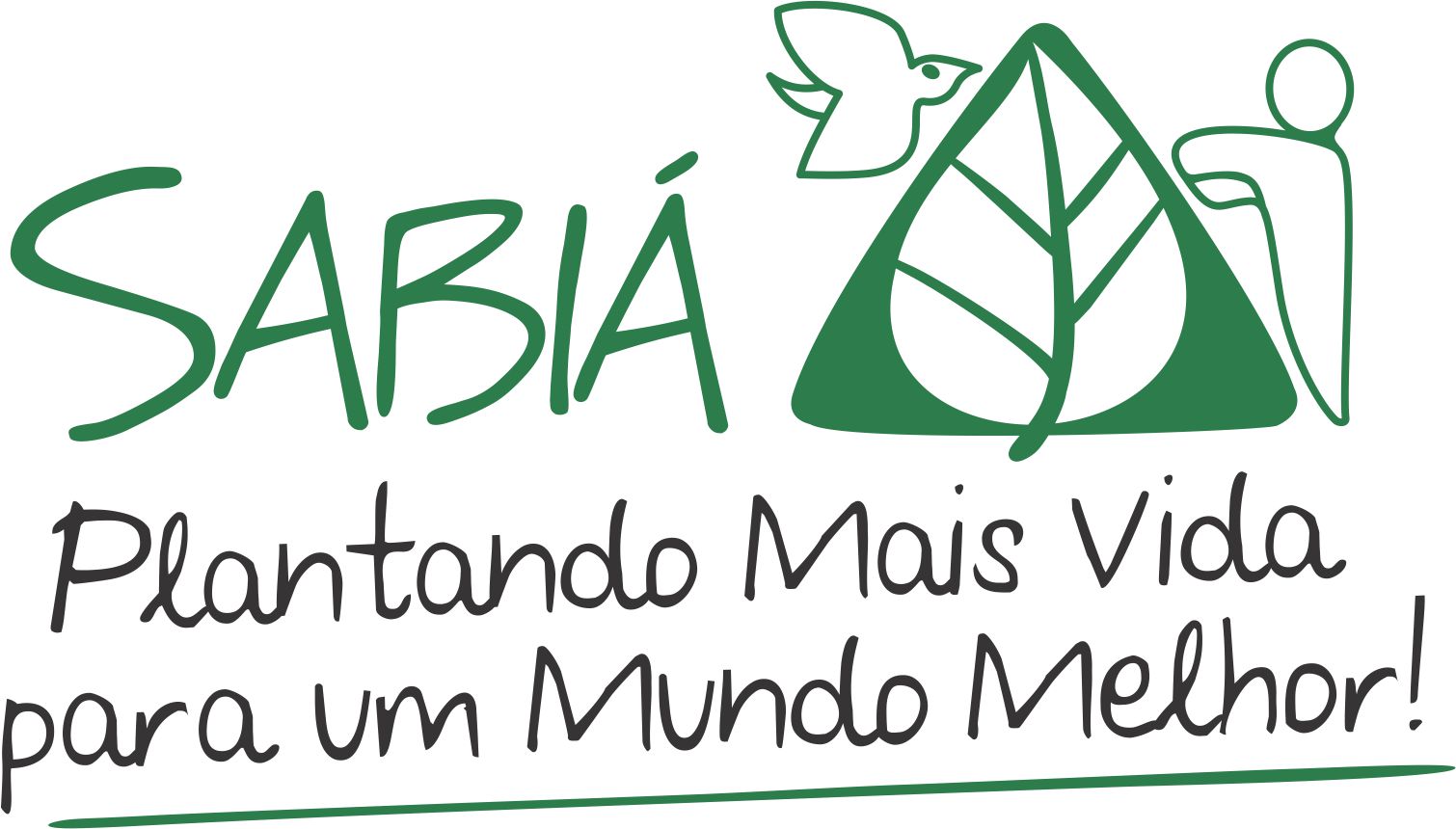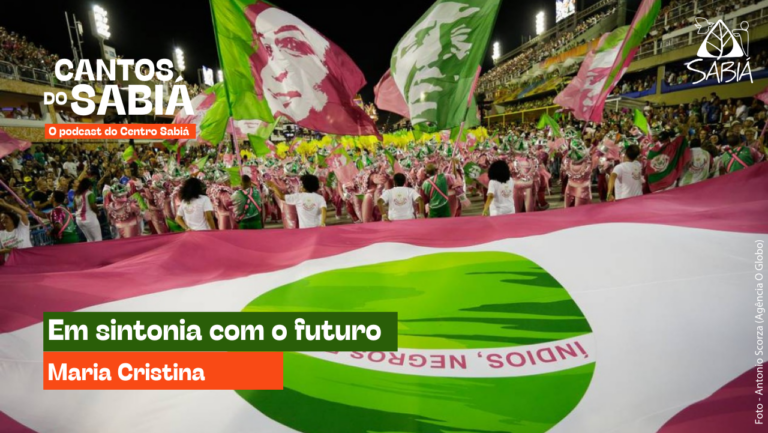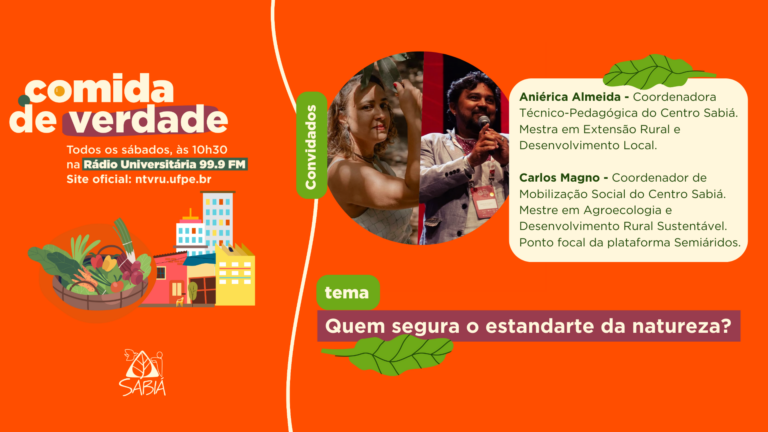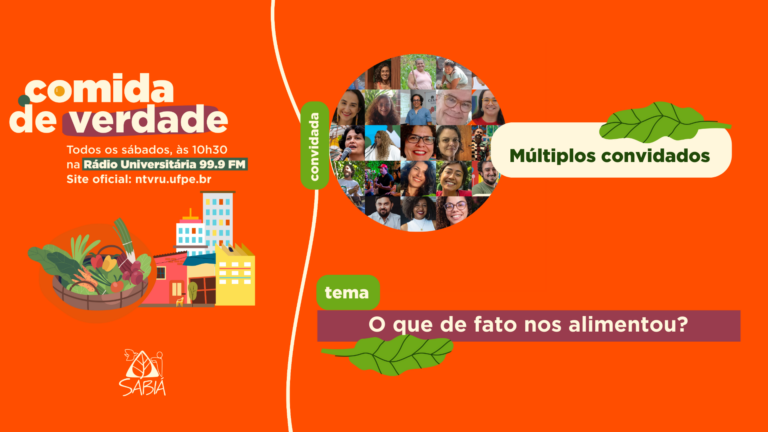Long live the Two Fingers of Prose!
Dois Dedos de Prosa newspaper reaches its hundredth as a creative, critical and independent bulletin that communicates educational content to strengthen popular resistance struggles
Marcos Antonio Bezerra Figueiredo
Founding partner of Centro Sabiá and professor at UFRPE
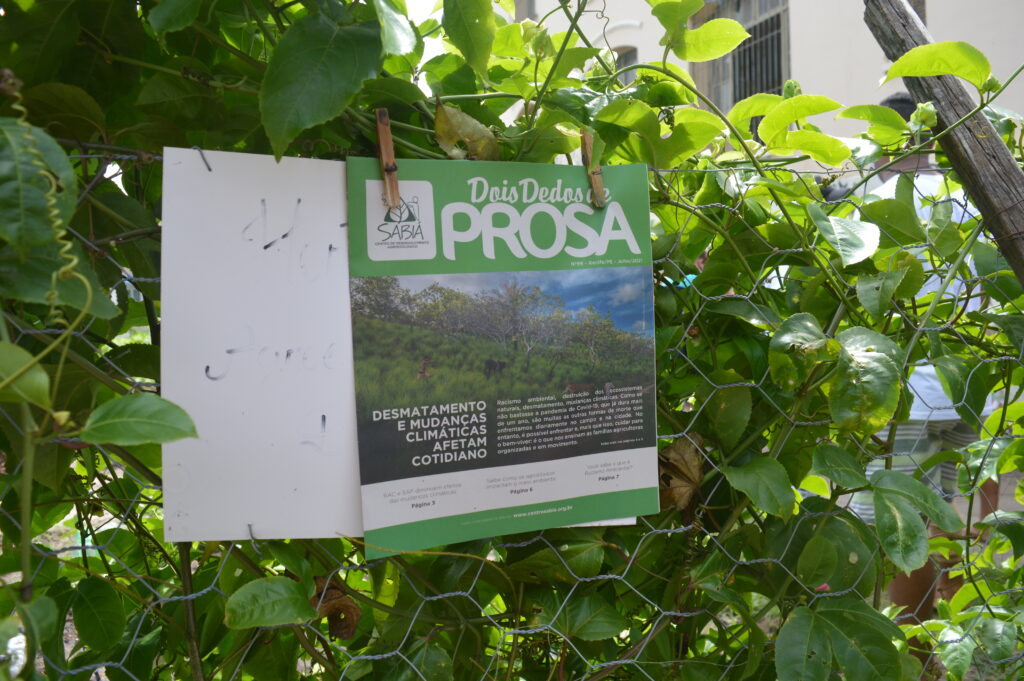
As we know, prose is a literary style, but in Brazilian popular culture this word also means an open and friendly conversation. A kind of relaxed chat with the aim of communicating a fact, a story, a novelty or even solving a question. This type of narrative is very common among people from the rural world who daily use oral communication to report events of life in the communities. With this in mind, the team of the Projeto Tecnologias Alternativas Pernambuco e Paraíba of Centro Josué de Castro – institutional nest of Centro Sabiá – decided to create, in 1989, the newsletter “Dois Dedos de Prosa”, whose name and spirit sought to capture this popular, creative style. and playful communication.
The first numbers were produced almost by hand using typewriters, hand painting and assembly, and their reproduction on copiers. In the first edition, 300 copies were produced, sent by the Post Office from a direct mailing address to the headquarters of popular organizations linked to the rural workers’ union movement, Catholic Church pastorals, government institutions, among others.
To produce the DDP, as it is affectionately called, and other pieces of communication, such as the Calendar and the Caderno Histórias da Roça (which disseminated productive and organizational experiences of peasant family production), a communication team was structured, which was composed of a journalist (Vanderlúcia Maria da Silva), a diagrammer – a profession today called designer – (José Tavares) and a draftsman (Frei Domingos Sávio). A lean but brilliant team that set the tone in terms of journalistic and artistic quality with the argument that publications for family farming should be of quality.
” Boldness, quality and creativity are its hallmarks to this day, strengthening an affirmative communication style from the perspective of peasant family farming, agrarian reform and the defense of other models and food systems .”
On July 9, 1993, when Centro Sabiá was institutionalized as a non-governmental organization with its own legal personality, communication was already a consolidated action and an important part of the institutional culture. It was not just about improving publications with boldness, quality and creativity, which are its hallmarks until today, but mainly strengthening an affirmative communication style from the perspective of peasant family farming, agrarian reform, the defense of a rural development model based on in family farming and in biodiverse food systems, such as agroforestry, which conserve nature, recover degraded soils and produce food permanently.
For the strategy of agroforestry systems to prosper, communication played a unique role. Between 1992 and 1993, Centro Sabiá pioneered participatory training and experimentation processes for the implementation of agroforestry areas in Pernambuco, notably in the municipality of Bom Jardim, with the support of the German Technical and Social Cooperation Service (Sactes) and with by Ernst Gotsch. The doubts about the feasibility, about the effectiveness of this new way of working were enormous. Many people said that “planting wood does not give a future” or even that these production systems “are not viable in the semiarid region”, in addition to other false arguments that pointed to an incompatibility between the forest and food production.
” The communication developed by Centro Sabiá is linked to social struggles for human rights, democracy and a project for a plural, fraternal, harmonious country, with agrifood systems based on the principles of agroecology, food sovereignty and sociocultural diversity .”
The fact is that the communication of the Green Revolution (VR), with its ideological narrative supported by large media companies (radio, television, newspapers, etc.), controls communication systems and exerts a strong influence on the formation of public opinion with persuasive advertisements. . For her, everything that is different, such as agroforestry systems, is false and doesn’t work. The main lie propagated by VR communication was that it would end world hunger. However, its real hidden objective has always been the commodification of nature and the concentration of profits in a few hands.
The communication developed by Centro Sabiá goes in the opposite direction to this one: it is counter-hegemonic and is linked to social struggles for human rights, democracy and a project for a plural, fraternal, harmonious country, with agrifood systems based on the principles of agroecology, food sovereignty and sociocultural diversity. This communication is a space for those who are prevented from speaking, denouncing and announcing that another world that is more supportive, collaborative and respectful of all forms of life is possible.
It is with this editorial line marked by this irrevocable commitment that Dois Dedos de Prosa reaches number one hundred and uninterruptedly. A historic brand that should be celebrated as a great achievement of a creative, critical and independent newsletter that increasingly evolves to fulfill its historical development of communicating educational content to strengthen the struggles of popular resistance against inequality, the devastation of nature and hunger imposed on millions of Brazilians by an unnamable federal government.
Long live the newspaper Dois Dedos de Prosa and its liberating communication!
Nothing found.

